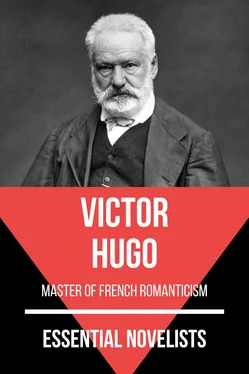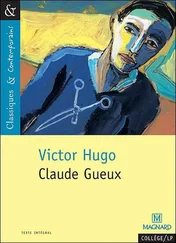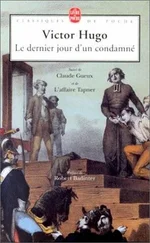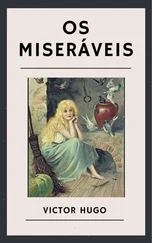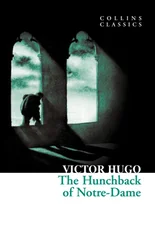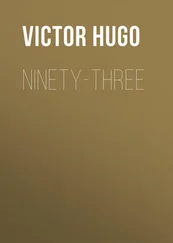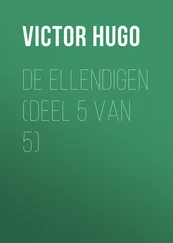We believe that he had simply studied in Holland for an inn-keeper. This rascal of composite order was, in all probability, some Fleming from Lille, in Flanders, a Frenchman in Paris, a Belgian at Brussels, being comfortably astride of both frontiers. As for his prowess at Waterloo, the reader is already acquainted with that. It will be perceived that he exaggerated it a trifle. Ebb and flow, wandering, adventure, was the leven of his existence; a tattered conscience entails a fragmentary life, and, apparently at the stormy epoch of June 18, 1815, Thénardier belonged to that variety of marauding sutlers of which we have spoken, beating about the country, selling to some, stealing from others, and travelling like a family man, with wife and children, in a rickety cart, in the rear of troops on the march, with an instinct for always attaching himself to the victorious army. This campaign ended, and having, as he said, “some quibus,” he had come to Montfermeil and set up an inn there.
This quibus, composed of purses and watches, of gold rings and silver crosses, gathered in harvest-time in furrows sown with corpses, did not amount to a large total, and did not carry this sutler turned eating-house-keeper very far.
Thénardier had that peculiar rectilinear something about his gestures which, accompanied by an oath, recalls the barracks, and by a sign of the cross, the seminary. He was a fine talker. He allowed it to be thought that he was an educated man. Nevertheless, the schoolmaster had noticed that he pronounced improperly. 12
He composed the travellers’ tariff card in a superior manner, but practised eyes sometimes spied out orthographical errors in it. Thénardier was cunning, greedy, slothful, and clever. He did not disdain his servants, which caused his wife to dispense with them. This giantess was jealous. It seemed to her that that thin and yellow little man must be an object coveted by all.
Thénardier, who was, above all, an astute and well-balanced man, was a scamp of a temperate sort. This is the worst species; hypocrisy enters into it.
It is not that Thénardier was not, on occasion, capable of wrath to quite the same degree as his wife; but this was very rare, and at such times, since he was enraged with the human race in general, as he bore within him a deep furnace of hatred. And since he was one of those people who are continually avenging their wrongs, who accuse everything that passes before them of everything which has befallen them, and who are always ready to cast upon the first person who comes to hand, as a legitimate grievance, the sum total of the deceptions, the bankruptcies, and the calamities of their lives,—when all this leaven was stirred up in him and boiled forth from his mouth and eyes, he was terrible. Woe to the person who came under his wrath at such a time!
In addition to his other qualities, Thénardier was attentive and penetrating, silent or talkative, according to circumstances, and always highly intelligent. He had something of the look of sailors, who are accustomed to screw up their eyes to gaze through marine glasses. Thénardier was a statesman.
Every newcomer who entered the tavern said, on catching sight of Madame Thénardier, “There is the master of the house.” A mistake. She was not even the mistress. The husband was both master and mistress. She worked; he created. He directed everything by a sort of invisible and constant magnetic action. A word was sufficient for him, sometimes a sign; the mastodon obeyed. Thénardier was a sort of special and sovereign being in Madame Thénardier’s eyes, though she did not thoroughly realize it. She was possessed of virtues after her own kind; if she had ever had a disagreement as to any detail with “Monsieur Thénardier,”—which was an inadmissible hypothesis, by the way,—she would not have blamed her husband in public on any subject whatever. She would never have committed “before strangers” that mistake so often committed by women, and which is called in parliamentary language, “exposing the crown.” Although their concord had only evil as its result, there was contemplation in Madame Thénardier’s submission to her husband. That mountain of noise and of flesh moved under the little finger of that frail despot. Viewed on its dwarfed and grotesque side, this was that grand and universal thing, the adoration of mind by matter; for certain ugly features have a cause in the very depths of eternal beauty. There was an unknown quantity about Thénardier; hence the absolute empire of the man over that woman. At certain moments she beheld him like a lighted candle; at others she felt him like a claw.
This woman was a formidable creature who loved no one except her children, and who did not fear any one except her husband. She was a mother because she was mammiferous. But her maternity stopped short with her daughters, and, as we shall see, did not extend to boys. The man had but one thought,—how to enrich himself.
He did not succeed in this. A theatre worthy of this great talent was lacking. Thénardier was ruining himself at Montfermeil, if ruin is possible to zero; in Switzerland or in the Pyrenees this penniless scamp would have become a millionaire; but an inn-keeper must browse where fate has hitched him.
It will be understood that the word inn-keeper is here employed in a restricted sense, and does not extend to an entire class.
In this same year, 1823, Thénardier was burdened with about fifteen hundred francs’ worth of petty debts, and this rendered him anxious.
Whatever may have been the obstinate injustice of destiny in this case, Thénardier was one of those men who understand best, with the most profundity and in the most modern fashion, that thing which is a virtue among barbarous peoples and an object of merchandise among civilized peoples,—hospitality. Besides, he was an admirable poacher, and quoted for his skill in shooting. He had a certain cold and tranquil laugh, which was particularly dangerous.
His theories as a landlord sometimes burst forth in lightning flashes. He had professional aphorisms, which he inserted into his wife’s mind. “The duty of the inn-keeper,” he said to her one day, violently, and in a low voice, “is to sell to the first comer, stews, repose, light, fire, dirty sheets, a servant, lice, and a smile; to stop passers-by, to empty small purses, and to honestly lighten heavy ones; to shelter travelling families respectfully: to shave the man, to pluck the woman, to pick the child clean; to quote the window open, the window shut, the chimney-corner, the armchair, the chair, the ottoman, the stool, the feather-bed, the mattress and the truss of straw; to know how much the shadow uses up the mirror, and to put a price on it; and, by five hundred thousand devils, to make the traveller pay for everything, even for the flies which his dog eats!”
This man and this woman were ruse and rage wedded—a hideous and terrible team.
While the husband pondered and combined, Madame Thénardier thought not of absent creditors, took no heed of yesterday nor of to-morrow, and lived in a fit of anger, all in a minute.
Such were these two beings. Cosette was between them, subjected to their double pressure, like a creature who is at the same time being ground up in a mill and pulled to pieces with pincers. The man and the woman each had a different method: Cosette was overwhelmed with blows—this was the woman’s; she went barefooted in winter—that was the man’s doing.
Cosette ran upstairs and down, washed, swept, rubbed, dusted, ran, fluttered about, panted, moved heavy articles, and weak as she was, did the coarse work. There was no mercy for her; a fierce mistress and venomous master. The Thénardier hostelry was like a spider’s web, in which Cosette had been caught, and where she lay trembling. The ideal of oppression was realized by this sinister household. It was something like the fly serving the spiders.
Читать дальше
